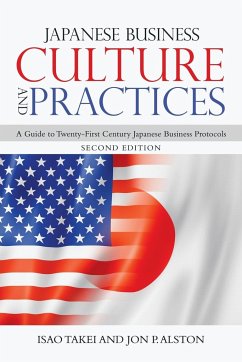Seminar paper from the year 2002 in the subject Business economics - Miscellaneous, grade: 2,6 (B), University of Cooperative Education Mannheim (Braunschweig-Wolfenbüttel University of Applied Sciences), language: English, abstract: Although the world is still devided into different countries and regions it grows together steadily. Companies buy the components and ingredients for their products from suppliers in many different countries to get best quality at lowest costs and sell their products and services to costumers all over the world.Because of this globalization it gets more and more important to learn and to know the special rules, rituals, and the way of thinking in a differtent culture, if a company wants to do business there. The old saying "When in Rome do as the Romans do" is still valid. The differences exist between all coutries and cultures not only between Europe and Asia. The knowledge about the differences can and will build the first step to a successful relationship.This paper deals with the Japanese etiquette and ethics in business. What should a foreigner think about when doing business with Japanese business partners? Chapter 1 is about the structure and the peculiarities of Japanese companies. Afterwards general aspects to be taken into consideration are described. The chapters 4 and 5 deal with rules for doing business with the Japanese and with two important rituals in Japanese business culture. The last chapter provides guidelines for successful meetings and negotiations.
Hinweis: Dieser Artikel kann nur an eine deutsche Lieferadresse ausgeliefert werden.
Hinweis: Dieser Artikel kann nur an eine deutsche Lieferadresse ausgeliefert werden.








